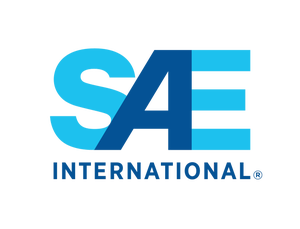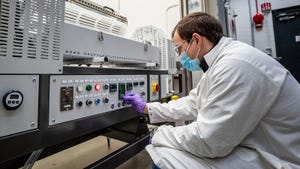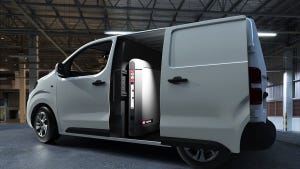EV Battery Knowledge Moves from Specialty to Mainstream
EV battery and infrastructure technologies now command attention at the highest levels of politics, economics, and international relations. New SAE courses can keep you on track.
July 5, 2023
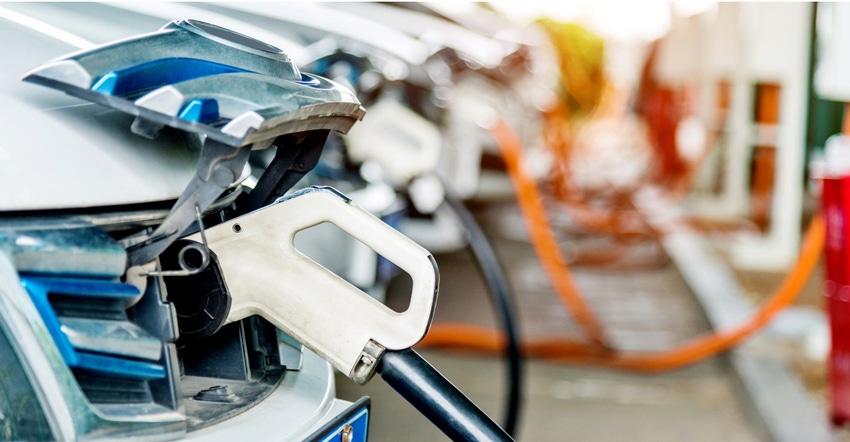
Michael O’Shea
Battery power has gone mainstream. Once the purview primarily of engineers and automotive buffs, electric-vehicle (EV) batteries now command attention at the highest levels of politics, economics, and international relations.
One notable instance occurred this month when General Motors (GM) and longtime rival Ford announced their vehicles would become compatible with Tesla charging stations. The agreement constitutes a major development in the nation’s EV infrastructure. Reactions have ranged from Twitter, to Wall Street, to the White House.
SAE International, striving to remain at the forefront of mobility knowledge and standardization, announced it would standardize the Tesla-developed North American Charging Standard (NACS) connector. The move ensures that any supplier or manufacturer will be able to use, manufacture, or deploy the NACS connector on electric vehicles and at charging stations across North America.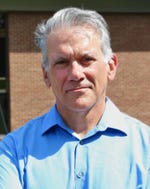
“Standardizing the NACS connector will provide certainty, expanded choice, reliability and convenience to manufacturers and suppliers and, most of all, increase access to charging for consumers,” said Frank Menchaca, President, Sustainable Mobility Solutions (SMS), an innovation arm of SAE’s parent company, Fullsight. (Shown, right.)
Overseas, the mobility sector is developing apace.
The Japanese government, which oversees the world’s third-largest economy, just pledged nearly $1 billion to subsidize Toyota and other national automotive manufacturers in their quest for battery supply-chain security. This comes after a bilateral Japan-US trade deal centered on EV-battery minerals, signed in March.
"As the international competition for storage batteries is intensifying, competition for capital investment is also becoming more intense," said Yasutoshi Nishimura, Japan’s Minister of Economy, Trade and Industry.
Similarly, the European Union pledged "targeted, temporary and proportionate" financial support to boost European manufacturers of green-tech products like EV batteries and help continental players become less reliant on American and Chinese suppliers.
In the United States, GM and Samsung SDI announced plans for an Indiana battery-manufacturing plant at a cost of $3 billion. Similar plants, operating through the Ultium Cells, LLC, joint venture between GM and LG Energy, are undergoing development in Michigan, Ohio, and Tennessee.
Implications of this manufacturing activity influence union negotiations, political campaigns, state legislative sessions, international trade, and more.
Clearly, then, as the mobility infrastructure is transitioning to battery power, knowledge of battery technology is exiting the specialty realm and becoming critical for decision-makers in all corners of society.
SAE International has been at the vanguard of this mobility revolution. Its SMS startup specifically aims to improve the EV-charging ecosystem.
In one of its first major initiatives, SMS is bridging the knowledge gap between specialist and society at large with its innovative SAE/InnoEnergy Battery Academy, an educational collaboration with Dutch firm InnoEnergy.
SAE/InnoEnergy Battery Academy features 22 on-demand courses with hundreds of hours of training on topics across the battery lifecycle. It addresses critical concepts like raw materials, cell manufacturing, recycling, and second life. OEMs and suppliers seeking to train or refine skills for the new era of mobility can particularly benefit from these courses, but the content is also designed to assist stakeholders like government officials, educators, and corporate executives.
So far, the SMS team has been excited to introduce SAE/InnoEnergy Battery Academy at gatherings of mobility professionals in the United States and Europe. You’re invited to learn more about SMS and SAE/InnoEnergy Battery Academy and review the course catalog here.
About the author

You May Also Like
